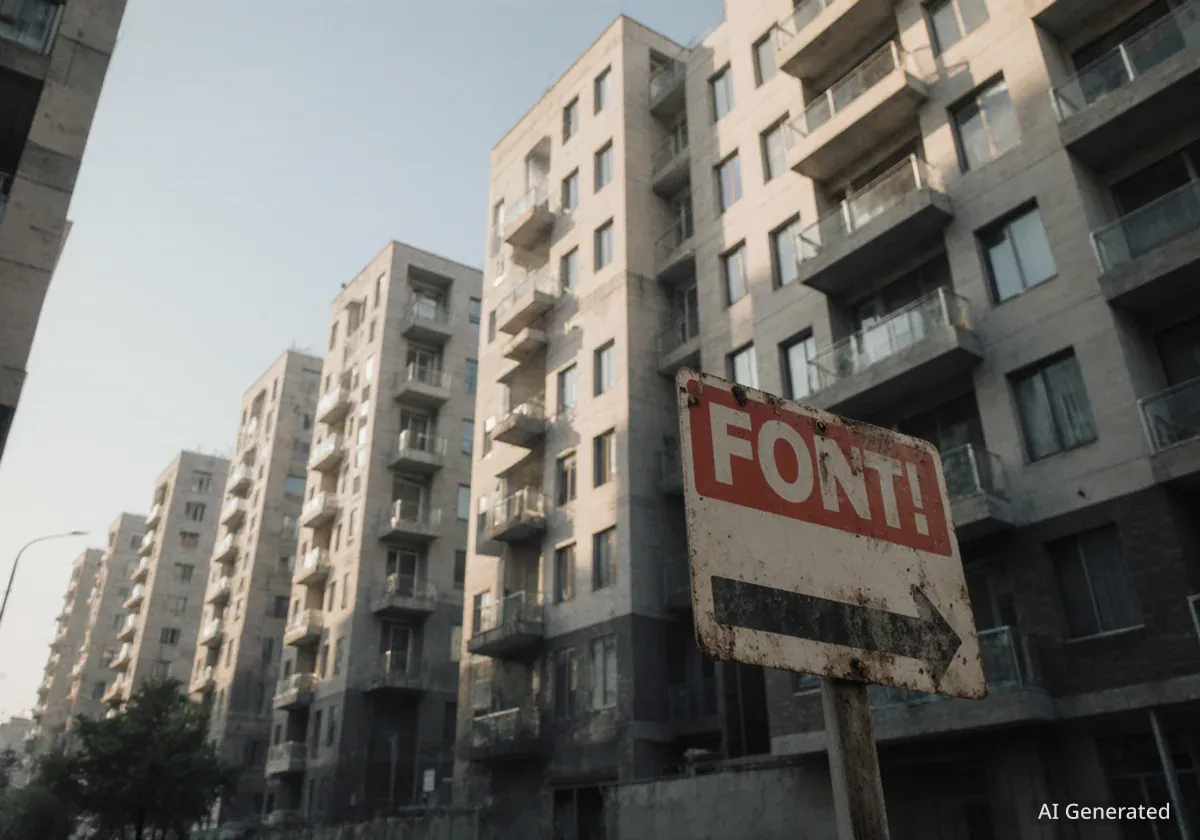A federal judge has taken the rare step of nullifying a $1.5 million home sale in Margate, New Jersey, ordering the sellers to return the entire purchase price to the buyers. The ruling, issued on September 15, found that the sellers fraudulently concealed major structural defects and had performed extensive, unpermitted renovations on the property.
U.S. District Court Judge Karen M. Williams granted a summary judgment in favor of the buyers, Vincent and Therese Novelli. The decision voids the June 8, 2022, sale of the home at 10 West Drive, citing the sellers' deliberate failure to disclose critical information that would have affected the transaction.
Key Takeaways
- A federal judge voided the $1.5 million sale of a home in Margate, New Jersey.
- Sellers William and Judith Breslin were ordered to return the full purchase price to the buyers.
- The court found the sellers committed fraud by not disclosing a 44-page inspection report detailing serious defects.
- The sellers also completed approximately $400,000 in renovations without obtaining required city permits, violating local and federal building regulations.
Court Rules Sale Was Fraudulent
The legal dispute centered on the actions of sellers William and Judith Breslin. According to the court's decision, Judith Breslin, a real estate agent with experience in buying and selling 26 homes, was aware of significant problems with the property but did not disclose them. The sale to the Novellis was finalized after a previous deal with another potential buyer fell through.
A key piece of evidence was a 44-page property inspection report from November 2021, prepared for the initial prospective buyer. This report, which the Breslins received but did not share with the Novellis, documented numerous serious issues.
Undisclosed Defects
The inspection report detailed several major problems, including rotted floor joists affecting structural integrity, a deficient heating system, mold in the crawlspace, termite damage, and cracked exterior stucco that allowed water infiltration. The estimated cost to repair the stucco alone was $112,000.
When the first buyers requested a price reduction based on these findings, the Breslins refused, and the deal was terminated. The property was then sold to the Novellis without any disclosure of this prior inspection or its findings. Judge Williams determined that this was a deliberate concealment of material facts.
Under New Jersey case law, “deliberate concealment of a latent defective condition material to the transaction constitutes sufficient grounds to justify rescission of a contract to purchase realty,” Judge Williams wrote in her decision.
The judge declared the contract “null and void” from its inception and ordered the full $1.5 million to be returned. While she ruled in favor of the Novellis on the fraud claim, a separate motion for breach of contract was denied.
Extensive Renovations Violated Building Codes
The Breslins purchased the four-bedroom home in July 2019 for $575,000. They then spent an estimated $400,000 on major renovations, including installing a new kitchen and bathrooms, moving walls, and replacing the HVAC system. However, they failed to obtain any of the required building permits from the City of Margate for this work.
This oversight had serious regulatory consequences, particularly due to the property's location. Municipal land use law includes a critical provision known as the “50% rule.” This rule states that if the cost of improvements to a home equals or exceeds 50% of its assessed value, the entire structure must be elevated to meet modern FEMA flood standards or be completely replaced.
The 50% Rule Explained
The 50% rule is a key regulation in coastal and flood-prone areas. It is designed to ensure that substantially improved properties are brought up to current, safer building standards to mitigate flood risk. By performing $400,000 of work on a home purchased for $575,000, the sellers' renovations likely triggered this requirement.
According to the court's findings, Judith Breslin admitted she was aware of the 50% rule and the need for permits. She reportedly chose not to apply for them “because she was afraid that if she disclosed exactly what she had done, she would be found to have violated the 50% rule.”
Potential Consequences for Property and Owners
The unpermitted work leaves the new owners, the Novellis, in a difficult position. Judge Williams noted that as a result of the sellers' actions, “Margate City could seek to hold Plaintiffs liable for daily fines or compel compliance with modern building codes, which would effectively require demolition of the existing structure.”
Penalties for failing to comply with municipal land use laws can be severe, including fines of up to $1,250 per day and potential imprisonment for up to 90 days.
Palma Shiles of the Margate Construction Office confirmed that city officials would meet to discuss the property. “They will probably get a violation for doing work without a permit,” she stated. Shiles emphasized the public safety risks associated with uninspected construction work.
“We tell people all the time that doing work without permits could be unsafe because there were no inspections,” Shiles said. “What scares me is that when work is done without permits, the work is being done by someone who is unlicensed or not reputable.”
Shiles added that the case highlights the “serious consequences” of ignoring permit requirements. In Margate, even improvements that are normally exempt, such as new roofing and siding, may require a Floodplain Development Permit to ensure compliance with the 50% rule. This process ensures that licensed and registered contractors perform the work, adding a layer of safety and accountability for homeowners.





